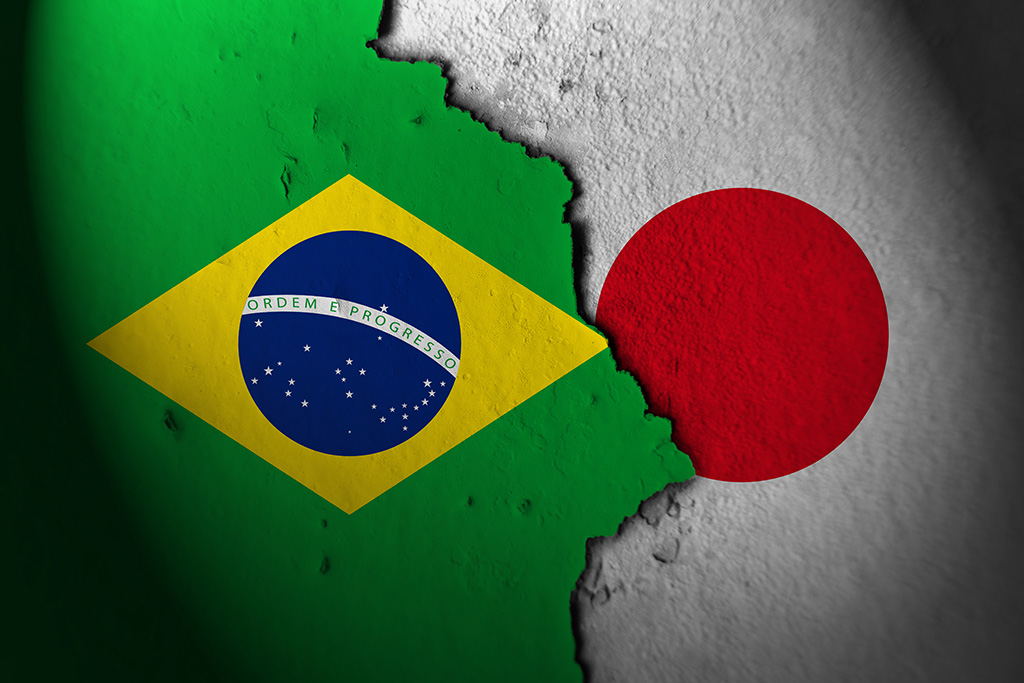Brazil and Japan share a deep-rooted economic relationship that has spanned decades, characterized by strong trade ties and significant investment flows. However, as global markets become increasingly volatile, the economic partnership between these two nations faces both challenges and opportunities. Understanding the dynamics of Brazil-Japan relations is crucial for investors looking to navigate the risks and capitalize on the potential within these markets.
A Snapshot of Brazil-Japan Trade Relations
The trade relationship between Brazil and Japan has seen notable fluctuations over the years. Between 2000 and 2014, Brazilian exports to Japan surged by 172%, while Japanese exports to Brazil increased by 99% during the same period. Despite these earlier gains, the trade volume between the two countries has experienced a downturn in recent years.
Annual trade, which once stood at approximately $17-18 billion in 2011, has dropped to around $11 billion. However, Japan remains a vital trading partner for Brazil, ranking as its second-largest in Asia and ninth-largest globally in 2023, with total trade amounting to $11.7 billion. Brazil continues to maintain a trade surplus with Japan, recorded at $1.491 billion in 2023.
The Role of Japanese Investment in Brazil
Japan’s investment footprint in Brazil is both significant and diversified. As the eighth-largest foreign investor in Brazil, Japan’s investment stock is valued at around $28.5 billion, spanning various sectors such as automotive, electrical materials, and steel production. Over 450 Japanese companies are currently operating in Brazil, contributing to the country’s economic development and job creation.
Recent Developments: Strengthening Ties
In May 2024, Japanese Prime Minister Fumio Kishida’s visit to Brazil marked a significant milestone in bilateral relations. The visit culminated in the signing of 38 cooperation agreements, signaling both countries’ commitment to deepening economic ties. These agreements aim to enhance collaboration in critical areas such as trade, energy transition, and sustainable agriculture.
Brazilian President Luiz Inácio Lula da Silva has emphasized the importance of strengthening economic ties with Japan, particularly in fields related to energy and environmental sustainability. With global attention increasingly focused on decarbonization, the partnership between Brazil and Japan is poised to play a pivotal role in advancing green technologies and sustainable development.
Challenges and Opportunities in Brazil-Japan Relations
While the economic relationship between Brazil and Japan is robust, it is not without challenges. Notably, the share of Japanese products in Brazilian imports has declined from 5.3% in 2000 to 2.6% in 2014, highlighting a loss of market share for Japan. This trend presents a challenge for Japanese exporters and underscores the need for renewed efforts to strengthen trade ties.
On the flip side, Brazil offers substantial opportunities for Japanese investment, particularly in renewable energy. With Brazil’s vast potential in solar and wind energy, as well as emerging next-generation energy sources like hydrogen, Japan has a unique opportunity to expand its investment portfolio in these sectors. Additionally, cooperation in protecting the Amazon rainforest and advancing reforestation projects could further solidify the partnership, aligning with global sustainability goals.
Looking Ahead: Strategic Initiatives
To further enhance economic relations, Brazil and Japan are exploring the possibility of an Economic Partnership Agreement (EPA). Such an agreement could pave the way for increased trade and investment flows, creating a more favorable environment for businesses from both countries. Moreover, specific bilateral initiatives are being implemented to address the challenges and seize the opportunities that lie ahead.
Conclusion
The economic relationship between Brazil and Japan is a testament to the enduring ties between these two nations. While global market risks pose challenges, the strategic importance of their partnership remains clear. For offshore investors, understanding the nuances of Brazil-Japan relations is essential to navigating the complexities of the global economy.
At Invest Offshore, we are committed to keeping you informed about the latest developments in international markets. With investment opportunities in West Africa seeking investors for the Copperbelt Region, it’s crucial to stay ahead of the curve in understanding global market dynamics. Contact us today to learn how we can help you manage your investments in this ever-evolving economic landscape.

Leave a Reply